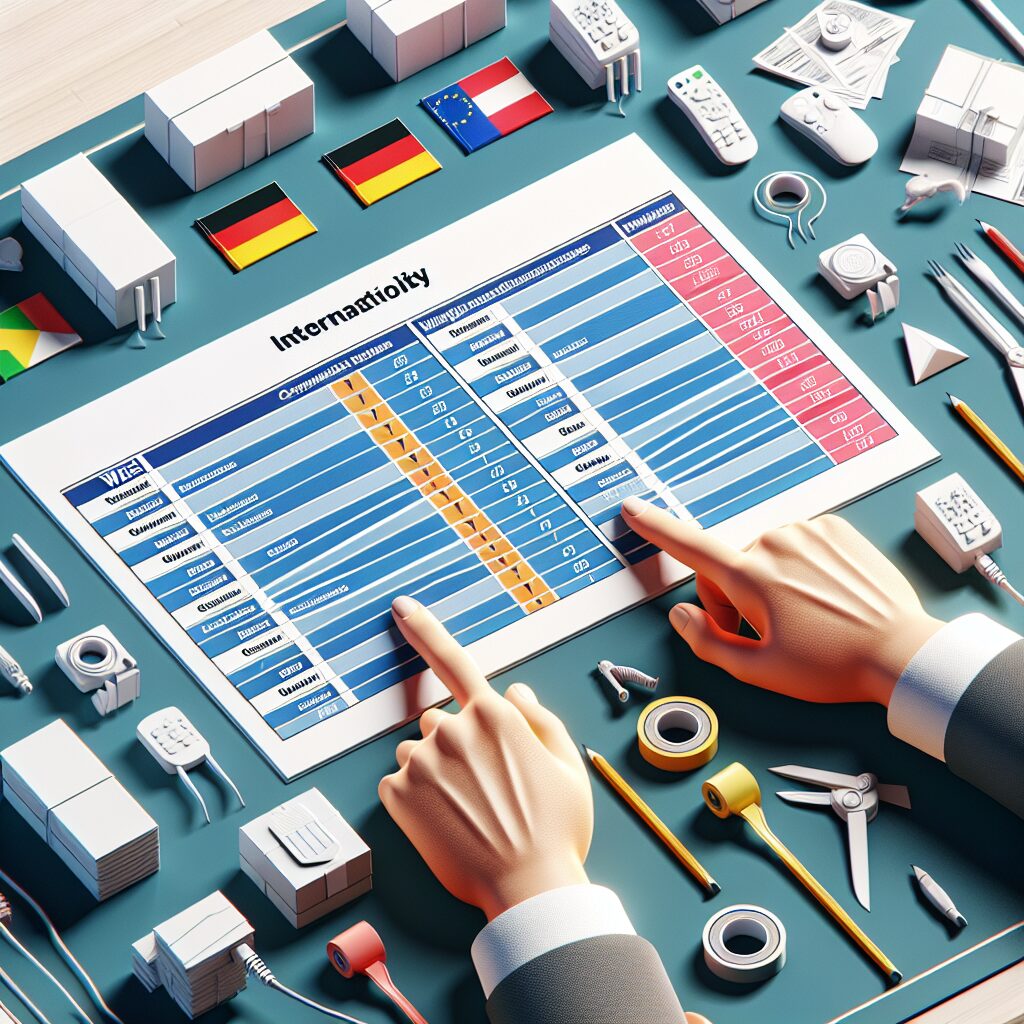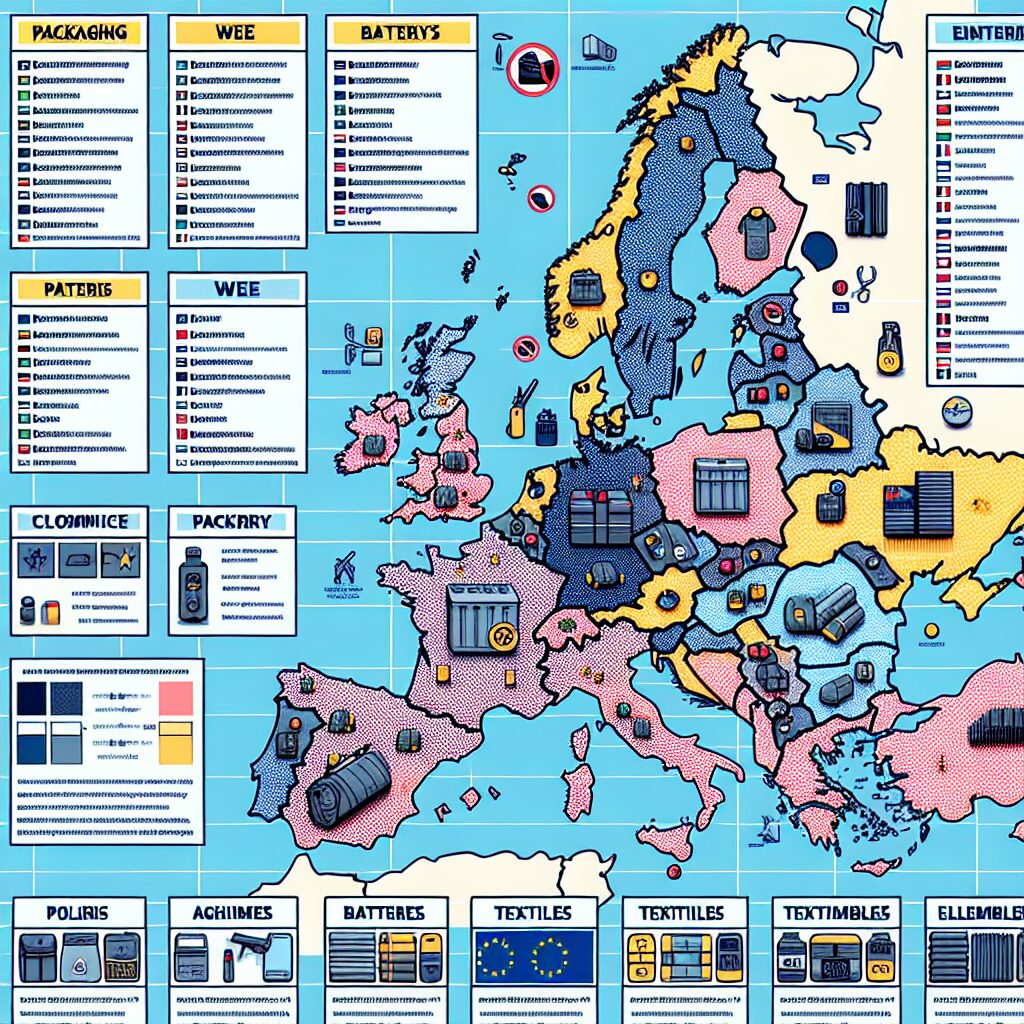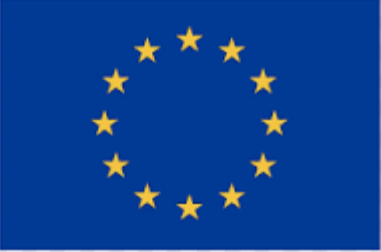About eldris
epr.eldris.ai leads the EPR sector, in fast, automated, AI Agent EU Complaince. LUCID Packaging, WEEE, and Battery Compliance for Brands, E-Commerce and Service based businesses expanding into the EU.
In This Article
- EU EPR compliance is mandatory for all eBay sellers shipping electronics in the EU.
- WEEE directive governs electronic waste; registration and reporting are not optional.
- Non-compliance can lead to delisting, fines, and business disruptions.
- Use automation tools to simplify reporting and document management.
- Proper labelling of products is an essential requirement for customs and eBay standards.
- Compliance drives visibility and trust among eco-conscious consumers in EU markets.
Understanding EU EPR Compliance for Sellers
What is EPR and Why It Matters on eBay
EU EPR compliance refers to the seller’s legal responsibility related to the environmental impact of the products they place on the European market. Extended Producer Responsibility (EPR) legislation shifts the cost and accountability of recycling and disposal of electronic products and packaging from the public sector to producers and sellers—both domestic and international. For eBay sellers aiming to penetrate or maintain presence in EU markets, non-compliance can lead to severe operational disruptions, including product delisting and account suspension.
Within this framework, the Waste Electrical and Electronic Equipment (WEEE) Directive is particularly critical. Sellers offering electronics, components, accessories, or devices with a plug or battery must comply, irrespective of their physical presence in the EU. Importantly, sellers are expected not just to report and register, but also to fund appropriate recycling mechanisms for the lifecycle of their listed products. For eBay sellers, EU EPR compliance thus becomes a business-critical obligation—not merely an environmental consideration.

What eBay Sellers Need to Know About WEEE
Scope of WEEE and Product Categorization
The Waste Electrical and Electronic Equipment (WEEE) directive falls under the broader EU EPR compliance framework and focuses specifically on electrical and electronic items. eBay sellers must first determine whether their listings fall within the WEEE-regulated product categories. These include large and small household appliances, IT and telecommunication equipment, consumer electronics, lighting, and automatic dispensers, among others.
To ensure accuracy, sellers must categorise each product based on the official WEEE classification system. Each category has its own set of reporting obligations. Misclassification, even unintentionally, can result in fines and delisting of products on platforms like eBay. Therefore, it’s vital for sellers to fully familiarise themselves with the applicable WEEE guidelines relevant to their inventory type.
“Whether you’re listing mobile phones or kitchen blenders, EU EPR compliance ensures you’re responsible for recycling and reporting – from sale to end-of-life.” – Marketplace Regulatory Expert
Marketplace Penalties for Non-Compliance
eBay enforces EU EPR compliance by requiring seller-provided registration numbers and proof of authorised recycling schemes. Failing to meet these requirements can result in stringent marketplace penalties, which include listing removal, storefront restrictions, imposed sales bans, and eventual account termination.
Additionally, each EU member state enforces unique penalties under localised versions of the EPR directive. For instance, non-compliant sellers in Germany may be banned from selling electronics without valid compliance numbers from the Stiftung EAR authority. Likewise, France mandates furnishing of eco-organisation proof—which must be validated before listings are permitted.
eBay actively partners with compliance platforms and regulatory bodies, increasing their verification checks. As of 2023, eBay has announced regulatory sweeps where sellers who don’t meet EU EPR requirements may see their entire electronics inventory delisted across European marketplaces.
How to Register for EU EPR as an eBay Seller
To comply, eBay sellers must begin by registering with the appropriate Producer Responsibility Organisations (PROs) in the countries they operate or ship to. The process involves gathering detailed information about your business structure, the volume and type of electronics sold, and projected future output.
Registration documents required include the VAT identification number, product descriptions, annual sales volume, and proof of authorised recycling participation. Upon registration, you receive an EPR registration number (such as a WEEE-Reg.-Nr in Germany), which must be updated on your eBay seller dashboard and included in all relevant product listings.
For sellers shipping transnationally in the EU, multi-country EPR registration is necessary. Sellers may also consider using aggregator consultants or EPR compliance service providers to streamline these registrations across all operational countries. Learn more about EU product compliance for online marketplaces
WEEE Reporting and Documentation Checklist
Once registered, eBay sellers must maintain meticulous documentation and submit periodic reports reflecting the volume and category of electrical products sold. These reports are typically required quarterly or annually, depending on jurisdiction and product class.
The following checklist highlights the essential documentation for WEEE compliance:
- Valid EPR registration and WEEE numbers for each EU market
- Product classification and category history
- Sales volume logs by product and geography
- Recycling fee payments and deposit verifications
- Partnership agreements with local PROs or recycling entities
Digital tools and dashboards provided by third-party compliance agencies help automate this reporting. eBay also shares periodic compliance updates and deadlines which should be cross-referenced with formal report schedules.
Labeling Your Products for EU Compliance
Labelling requirements under EU EPR and WEEE directives mandate that all electronic equipment sold in Europe be marked with the appropriate symbols. The crossed-out wheelie bin is the most recognisable mark indicating that the product should not be disposed of as unsorted municipal waste. Instead, it must be recycled appropriately.
Labels must be permanently affixed, legible, and compliant with visibility standards defined under individual national guidelines. For rechargeable battery products, sellers must also indicate battery chemistry and disposal codes. These labels represent not only a legal requirement, but also a visible testament to ethical and transparent selling practices.
Failure to affix correct labels can lead to customs seizures, shipping returns, and hefty non-compliance fines. Sellers are advised to review the latest EU product marking regulations and cross-check their packaging to ensure all applicable symbols and declarations are clearly presented.
How Automation Tools Simplify Seller Obligations
EU EPR compliance can be administratively overwhelming, particularly for multichannel eBay sellers. Fortunately, automation tools are now available to streamline much of the registration, reporting, and documentation processes. These platforms sync directly with your eBay account, track product categories, forecast reporting needs, and even generate report-ready compliance documentation.
Examples include SaaS tools which pull product data to classify items against WEEE categories automatically. Some tools also manage multi-country registrations across PROs and set automated reminders for report submission deadlines. Read a related article
eBay encourages sellers to partner with these digital compliance agencies or platforms to reduce administrative burden and improve operational accuracy. Leveraging automation allows sellers to focus on growth while ensuring sustainable, lawful operations.
Case Studies: Successful eBay EU Compliance Stories
One UK-based seller of refurbished audio tech saw revenue triple in Germany after gaining EPR compliance. By registering with the German PRO EAR Foundation and displaying their registration number on listings, they gained renewed buyer trust and premium listing placement.
Similarly, an entrepreneur based in Spain specialising in smart lighting signed up with a local compliance organisation and used automation tools to centralise all EU compliance tracking. Because of their proactive compliance, they avoided delisting during the 2023 WEEE enforcement purge and saw their listings featured in “Top Eco Seller” categories.
These case studies demonstrate that EU EPR compliance is not only a legal safeguard but can also be a strategic advantage. Marketplace algorithms increasingly recognise compliant sellers, improving visibility among environmentally conscious consumers.
FAQs: EPR and WEEE for eBay Sellers
Do I need to register if I only sell a few electronics?
Yes. EU EPR compliance applies regardless of business size or volume. Even low-volume sellers must register.
Can I use one EPR number for all countries?
No. Separate registration is required for each EU member state where products are sold or shipped.
How long does EPR registration take?
Typically 2 to 5 weeks per country. It’s advisable to initiate the process early to avoid sales interruptions.
Is EPR only about electronics?
No. While WEEE centres on electronics, EPR also covers packaging and batteries under other related directives.
What happens if I don’t comply?
Your listings may be removed, and you could face substantial fines or eBay account suspension.
Conclusion and Best Practices for Ongoing Safety
EU EPR compliance is no longer a bureaucratic checkbox—it’s a foundational component for sustainable, ethical, and legally robust selling on marketplaces like eBay. Sellers must equip themselves with the knowledge and strategies to register properly, report transparently, and label accurately. By embracing compliance tools, understanding local regulations, and treating sustainability not as a hurdle but an opportunity, eBay sellers can future-proof their operations and meet the expectations of both regulators and eco-aware consumers.
For ongoing success, make compliance part of your operational checklist. Perform regular audits. Stay in contact with compliance authorities. Subscribe to updates from your PRO. Above all, recognise that EU EPR compliance isn’t just a mandate; it’s a competitive advantage. EU GPSR and product safety rules for eBay
Great guide on ebay-sellers-safety-eu-epr-weee – Community Feedback
How can eBay sellers stay compliant with EU EPR rules?
eBay sellers must register for EPR in relevant EU countries, keep accurate packaging and product records, and ensure their WEEE obligations are fulfilled to avoid penalties or account restrictions.
Who needs to comply with WEEE regulations on eBay?
Any eBay seller offering electronic or electrical goods to EU buyers must comply with WEEE, including registration, reporting, and proper product labelling across EU markets.
What are the risks of ignoring EU EPR and WEEE requirements?
Non-compliance can result in fines, blocked listings, or eBay account suspension. Complying protects your marketplace business and builds customer trust.










